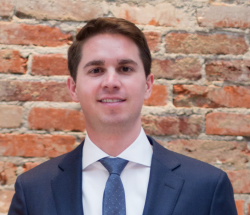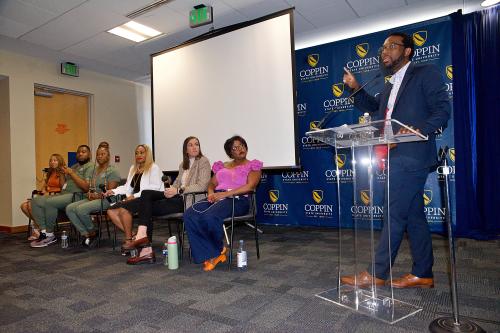In Detroit’s “New Center” area north of Wayne State University, entrepreneur Anthony Hatinger and his business partners are making a bet: that decades from now, crickets and other bugs will have a place in the American palate as consumers become more attentive to the environmental costs and price of meat.
But Hatinger and his partners are not alone in having a stake in the success of their edible bug enterprise. As Detroit bounces back from municipal bankruptcy, regional leaders are also betting that small businesses can help fuel a recovery that extends to neighborhoods and entrepreneurs historically disconnected from regional growth.
Some promising early signals point to success. The Kresge Foundation’s annual Detroit Reinvestment Index, which foundation President Rip Rapson presented at Brookings last week, finds significant confidence in the city among both national investors and local entrepreneurs.
Following the presentation, Hatinger and a panel of philanthropic and non-profit leaders considered the role of small businesses in Detroit’s resurgence and the promise of small business development to support inclusive economic outcomes in more places. Here are five highlights from the conversation:
1) Small businesses provide unique benefits to neighborhood economies and residents
Small businesses can create jobs in neighborhoods accessible to residents without a car, and help revitalize disinvested corridors. Janis Bowdler, head of small business and community development for global philanthropy at JPMorgan Chase, summarizes recent research pointing to a wide range of benefits that small businesses deliver.
2) Small businesses offer expanded pathways to opportunity and wealth-building
Small business development offers an opportunity for cities to support innovative ideas from a broad cross-section of citizens, with the potential to help individuals quickly achieve greater economic success. Anthony Hatinger, co-founder and chief executive officer of DetroitEnto, explains the power of this approach.
3) Cities need to intentionally build an ecosystem to support small businesses
Launching a business isn’t easy, and many start-ups fail. So cities need to be deliberate about structuring programs and outreach to both encourage start-ups and support existing small businesses. This ranges from cutting red tape to connecting entrepreneurs to office or production space and expertise from clusters. Cathy Belk, president of the Northeast Ohio-based entrepreneurship non-profit JumpStart, describes some of the barriers and how her organization is addressing them.
4) Small business development needs to occur in tandem with investments in growth industries—and requires a smarter approach to economic development
As cities invest in small, locally-serving businesses, they also need to maintain innovative growth industries, particularly in traded sectors with significant multiplier effects. Pamela Lewis of Detroit’s New Economy Initiative described following “not an ‘or’ strategy, … (but) an ‘and’ strategy.” In this clip, Bowdler expands on the need for cities to take a strategic approach examining both, which may be a shift for economic developers “focused on landing the next big fish.”
5) Philanthropy can play a role in building an entrepreneurial ecosystem—and delivering inclusive outcomes
Philanthropy has been a significant driver of Detroit’s economic recovery and investor in local economic development. Lewis describes the role of her organization, which pools philanthropic capital, as a “process manager for an entrepreneurial ecosystem” and the unique nature and implications of that model.
City-level small business development strategies like Detroit’s are occurring against the backdrop of a broader national decline in the business startup rate. Structural changes in the U.S. economy seem to be favoring large incumbents over new firm entrants, which has worrying implications for core economic fundamentals like job creation and productivity growth. Viewed in this light, local and regional efforts to enhance entrepreneurship not only advance important goals around neighborhood revitalization and wealth-building, but also can help counteract the nation’s declining business dynamism. For any city seeking to boost inclusive growth, Detroit’s big bet on small business bears watching.
The Kresge Foundation and JPMorgan Chase are members of the Metropolitan Leadership Council, a network of business, civic and philanthropic leaders that acts as a financial and intellectual partner of the Brookings Metropolitan Policy Program. The New Economy Initiative is a past supporter of the Metro Program.








Commentary
Detroit’s big bet on small business
May 23, 2017